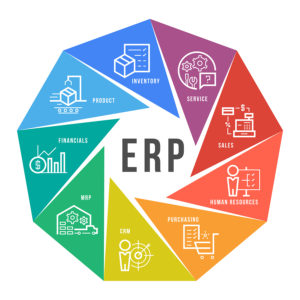Is It Time to Update Your ERP?


If only more businesses considered their ERP systems the way drivers consider their automobile tires, there would be less frustration in the business world. ERP systems, like car tires, can become outdated, outmoded, or “worn out.” Is it time to upgrade your ERP system?
Signs It’s Time for a Chance: When to Upgrade Your ERP System
Best-in-class organizations, or those that perform significantly above industry average, are more likely to upgrade their software than the average organization. If you’re striving for best in class performance, it’s time to “check the tires” of your ERP system and see if you spot any signals that it’s time for an upgrade.
- Lower productivity: Perhaps the ERP system helped boost productivity when you first installed it. Now, however, it is just getting in the way of what you need to do.
- Cumbersome processes: Compared to software you’ve seen or used online, your older ERP system seems outdated. It does less in a slower amount of time than other systems. Things you take for granted, such as the ability to log into a site no matter what device you’re using, are absent from older CRMS.
- No support: The company that launched the original software announced it will no longer provide updates or support. This leaves you without a safety net if something no longer functions in the software or if hackers discover and exploit a fault in it—no support means no more patches or updates to fix known issues. You’re on your own.
- Customization is a nightmare: Anytime you need the system to communicate with newer systems, you must call in a specialized programmer. The older ERP system doesn’t synchronize easily with other systems and requires custom programming, bridge programs to link two or more systems together, or other quick fixes.
- Reports don’t provide the right information: Instead of running reports directly from your ERP system and sharing them with management, you find yourself pulling data from multiple systems and entering it into spreadsheets. If you’re still using spreadsheets or reverting to spreadsheets, that’s a strong sign it’s time for an upgrade.
Do you see the signs? If so, it’s time to choose a new ERP system.
Choosing a New ERP System
To proceed with choosing a new ERP system, it’s important to gather feedback from your team to understand what everyone needs from the new system.
- Conduct a process review: Review all current processes and document how data currently moves from department to department. Where can you streamline this?
- Audit your reports: Audit your reporting requirements. Gather a wish list, then organize it into three columns: must have, nice to have, and probably not needed. Prioritize it from there into the reports that will benefit the most people in your company. This gives you a better idea of what you need in your new system.
- Compare ERP systems: Compare several ERP system features and benefits. Review these against the list of reports and processes you need to fulfill and then determine how well the potential systems under consideration will help you meet your needs.
- Shop around: Ask questions of potential ERP software vendors. Understand the total cost of ownership; are you purchasing a site license, seat-based license, or an annual subscription?
- Choose cloud: Cloud-based ERP is the most flexible, cost-effective, and easy to implement solution. It’s safe, secure, and easily expandable as your company grows.
- Support options: Ensure that any bids you receive include support and training options listed in the contract.
- Check references: Check references among any vendors under consideration.
This is just a quick guide to choosing an ERP system. If you are trying to understand the value of upgrading your ERP, see this infographic. For more help and a personal consultation, contact IWI Consulting Group or call 1-866-916-3851.

